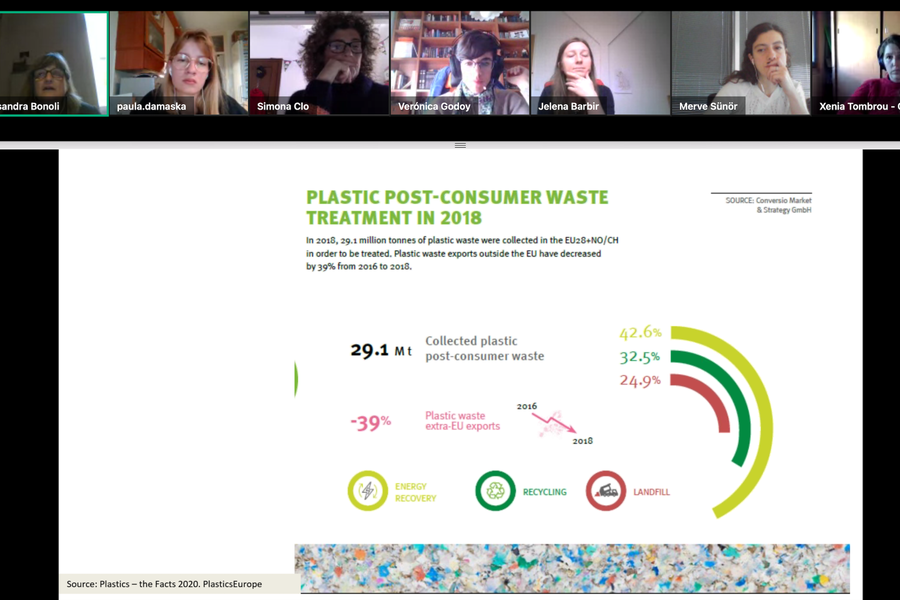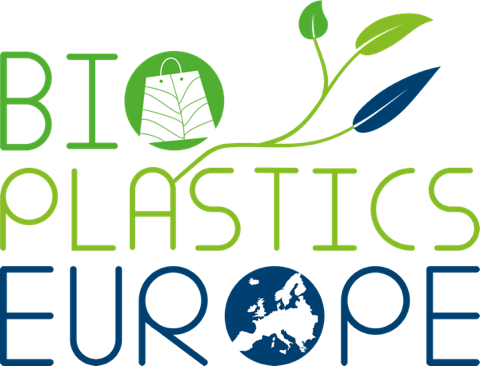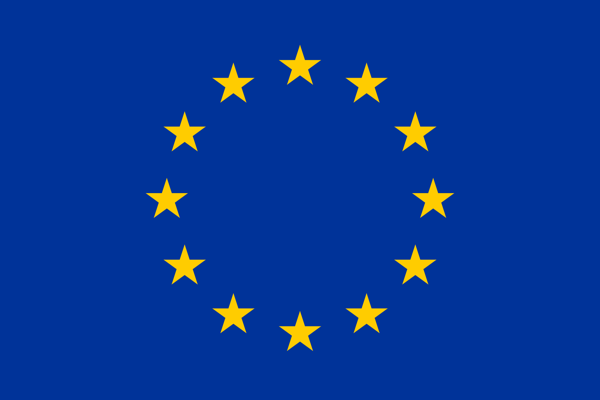Second HISCAP event
The second event for the Network of Historic Cities against Plastic Waste (HISCAP) took place on 15.12.2020. Organized by the University of Bologna (UNIBO), the event focused on “Best practices for sustainable plastic waste management in Mediterranean countries” and featured five presenters from Italy, Greece, Spain and Croatia. The speakers shared experience of their research institutions and initiatives battling marine plastic pollution in historic cities bordering the Mediterranean Sea, where the challenge is to preserve the tourism and the economy of the sea while also minimizing urban littering.

A short lifespan and improper end-of-life management makes packaging the plastic application that most contributes to the problem of marine pollution. In six beach clean-ups around the world which collected more than 14 million items, five of the ten most frequently found items fell within the category of plastic packaging. In the Mediterranean Sea, catch-sampling schemes reveal an average microplastic concentration of 147.500 particles/km2. It follows that preventing the use of
plastic materials and the reduction of plastic waste is crucial to addressing the problem of marine pollution.
Prof. Alessandra Bonoli (UNIBO) started the event with a presentation on “Circular economy as key strategy to sustainably manage plastic waste in Europe”, followed by a session where Dr. Jelena Barbir (HAW) presented HISCAP to the participants.
Prof. Alberto Bellini (UNIBO, BlueMed Initiative, Italy) revealed that the Mediterranean contains 1% of the world’s water but 7% of the microplastics detected in marine habitats. For this reason, the BlueMed Initiative is undertaking a number of actions to implement a pilot for a plastic-free, healthy Mediterranean.
Simona Clò (MedSharks, Italy) spoke about best practices of having citizens as agents of change to build a community, empower stakeholders and foster co-responsibility for promoting clean oceans. For impact, it is important that initiatives are seen as part of the community, and that successes are shown and celebrated. It is crucial to be flexible and be solution-oriented and grounded on everyday experience. Also important is to ask policymakers what kind of data they need to base their policy actions.
Verónica Godoy (Univeristy of Granada, Spain) related the experience of plastic recycling in the projects LIFE4FILM and LIFEPLASMIX.
Xenia Tombrou (International Centre for Research on the Environment and the Economy, Greece) spoke about sustainable waste management in the Greek island of Corfu, which has 102.000 inhabitants and receives an average of 1.300.000 tourists per year. As a result, waste generated between May and October are well above the annual average and lead to waste being dumped on the street. Community recycling operations, with the support of both the public and private sectors, have been successfully implemented in three different areas of Corfu and have a good replicability potential.
Paula Damaška (Green Energy Cooperative, Croatia) related the engagement of the local community of the Croatian island of Zlarin in reducing single-use plastics in foodservice operators and cafes. The island has 276 inhabitants but receives approximately 3.000 tourists during summer months. In one year, this initiative resulted in workshops, educational and cultural events a use reduction of 162.000 pieces of disposable plastics. This was only possible with the support from the local community, including caterers, traders and suppliers.
The highly informative session drew to a successful close with more than 60 people in attendance. The next event is already planned for February 2021 and more details will be shared shortly. If you work for a municipal administration that wishes to share knowledge, Best Practices and Lessons Learned among the HISCAP cities, you can join the network. You can find more information on it and the Membership Form at https://bioplasticseurope.eu/hiscap .


